 by Véto-pharma
by Véto-pharma In 2024, Véto-pharma’s experimental apiary celebrates its 10th anniversary. This research resource, comprising 300 colonies of bees, is at the heart of the development of innovative solutions for beekeeping today and tomorrow. Over the last decade, Véto-pharma has significantly invested in this apiary to carry out in-vitro trials to research new active ingredients to combat varroa mites and in-vivo trials to test new treatments and methods of application.
The technical objectives of Véto-pharma’s experimental apiary are multiple and essential in the context of research and innovation to identify and develop products that respond to the problems of the beekeeping world.
Autonomy and total control over testing
The experimental apiary enables Véto-pharma to carry out numerous independent trials. This autonomy and responsiveness are essential assets for speeding up the development of new solutions. Right from the start of a study, for example, it is possible to discuss the use of new solutions and their behaviour in beehives with the formulation teams. This process enables rapid feedback with the aim of rapidly improving the new formulation.
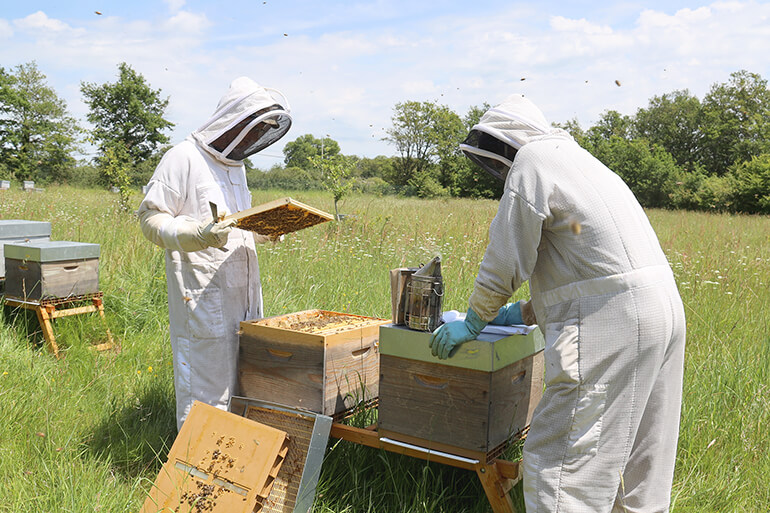
Consolidating technical references
One of the main objectives is also to consolidate the technical references for Véto-pharma’s products. This consolidation involves rigorous and ongoing comparative analysis to ensure that the solutions proposed continue to meet the expectations of beekeepers and the regulations.
Enhancing technical skills
As a pharmaceutical laboratory dedicated to bee health, Véto-pharma also aims to strengthen its technical skills, particularly in the fight against varroa mites. The knowledge and skills acquired through these trials will enable us to continually improve the solutions we offer beekeepers.
The development of new products
The experimental apiary is an open-air laboratory where new products and devices are tested to combat pests such as varroa mites and Asian hornets and improve bee nutrition. The trials also include new formulations of known active ingredients and improvements to application methods, such as more effective release.
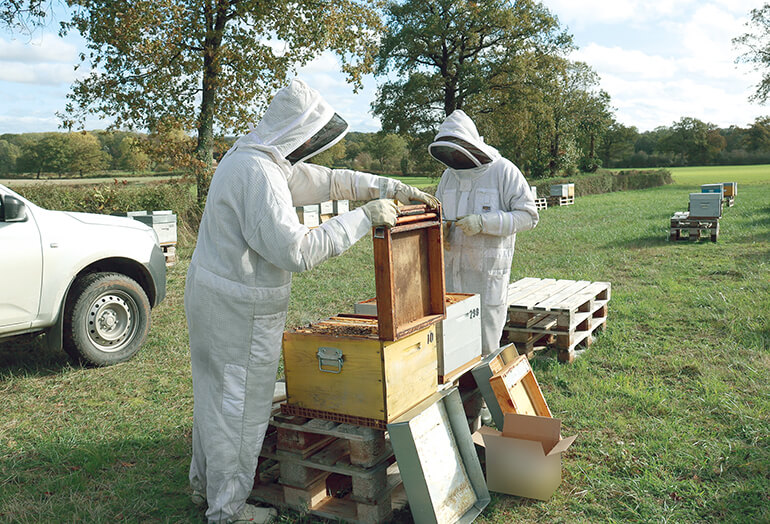
The development of new test protocols
The apiary team has developed specific protocols to speed up its efficiency tests. The aim, of course, is to be as efficient as possible in meeting the expectations of the beekeeping industry.
Monitoring product effectiveness
Testing Véto-pharma products with marketing authorisation
Every year, Véto-pharma tests the products with marketing authorisation it markets to check their effectiveness against expectations in the field. The tests aim to ensure that the solutions proposed remain effective, even in the face of various challenges, such as climate change. Protocols include using several different active ingredients to minimise the risk of resistance.
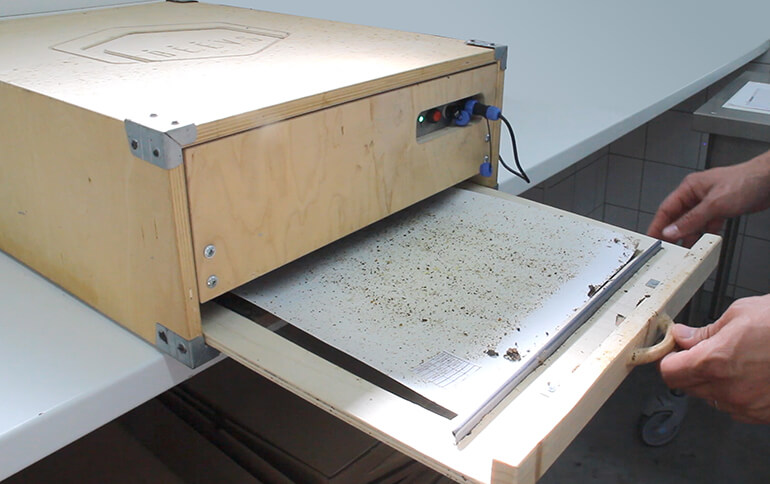
The bee innovation team also has an R&D laboratory dedicated to screening new molecules. Once these in-vitro tests are conclusive, in-vivo tests are set up to evaluate new simple formulations, thus providing an initial proof of concept. The aim is to develop simple, effective formulations that can be tested on whole colonies. As of 2018, 38 new molecules had been evaluated, and only 7 active ingredients had shown promise. These active ingredients were re-evaluated in subsequent years, along with 20 other new active ingredients. Today, more than a hundred active ingredients have been evaluated.
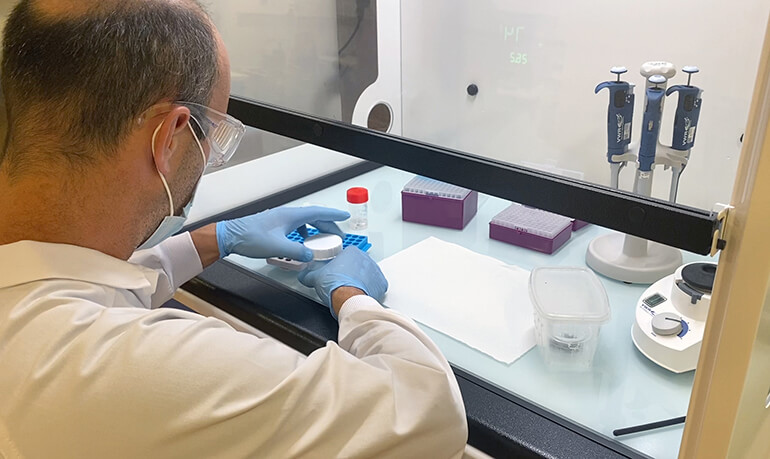
Many stages are necessary, from the initial research to obtaining the MA (Marketing Authorisation) issued by the medicine agencies. These stages include rigorous testing over several years, to guarantee proven efficacy against varroa mites while ensuring the safety of bees, users, and consumers.
New products and devices and technical improvements :
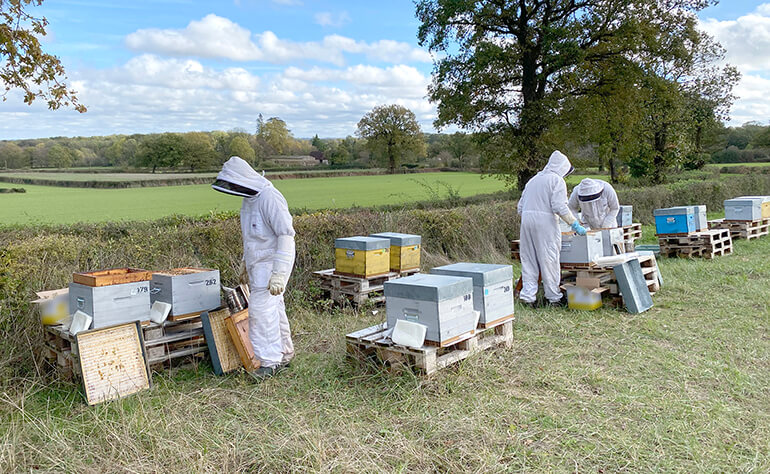
The Bee Research & Innovation Centre team also works with external partners to broaden its R&D scope and conduct studies in addition to those carried out in the apiary. For example, in 2023, Véto-pharma will support Simon Fraser University (SFU) in the development and registration of a new acaricide based on an innovative active ingredient discovered and patented by SFU.
This partnership opens up new prospects for research, coupled with the studies carried out at the test apiary.
 by Véto-pharma
by Véto-pharma  by Véto-pharma
by Véto-pharma  by Véto-pharma
by Véto-pharma Join the Véto-pharma community and receive our quarterly newsletter as well as our occasional beekeeping news. You can unsubscribe at any time if our content does not suit you, and your data will never be transferred to a third party!
© 2019-2025, Véto-pharma. All rights reserved